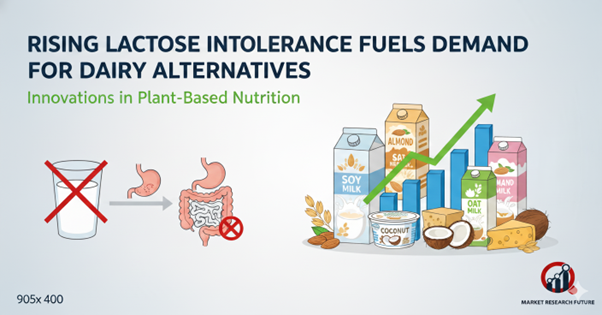Increasing Lactose Intolerance Increases the Demand for Plant-Based Beverages

The Growth of Drinks Made from Plants
Plant-based drinks made from grains, seeds, nuts, and legumes are quickly becoming popular as healthy alternatives to milk. Soy milk, oat milk, rice milk, and nut-based lassis are all low in calories but high in protein, calcium, vitamins, omega-3s, and probiotics. These drinks are great for people who can't eat lactose and want options that are good for their hearts and diabetes.
Health Benefits That Are Driving Demand
Plant-based drinks are high in mono- and polyunsaturated fats, which can lower the risk of diseases that are linked to how you live, like heart disease, stroke, and type 2 diabetes. The global demand has grown because more people are becoming aware of the benefits of vegan diets and living a fitness-conscious lifestyle. These drinks are also good for your gut health, boost your immune system, and are a long-lasting alternative to regular dairy.
New Things and Changes in the Market
Top brands are spending a lot of money on research and development to come up with new flavors and ingredients, such as those made from cashews, coconuts, and oats. Starbucks recently added the Iced Toasted Vanilla Oat Milk Shaken Espresso to its menu, making it more vegan-friendly. In Thailand, Plant Veda came out with a cashew lassi that is high in probiotics, and Nestlé came out with a soy-based version of its popular chocolate malt drink. Henderson's Relish came out with soy-potato snacks that are vegan and gluten-free and meet the UK's HFSS standards.
How Consumer Trends Affect Things
The COVID-19 pandemic sped up the move toward plant-based drinks as people looked for healthy drinks that would boost their immune systems. Plant-based drinks are now a staple in homes all over the world because more people are becoming lactose intolerant and more people are paying attention to their health and the environment.
Final Thoughts
The global market for plant-based drinks is doing well because people are becoming more health-conscious, and companies are always coming up with new products. This market keeps growing, from dairy alternatives to functional drinks with nutrients and probiotics. This is because people all over the world are moving toward healthier, plant-based lifestyles.

Leave a Comment